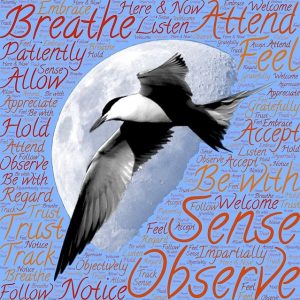I don’t know about you but I am terrible at remembering names. I can often be seen within a group of people hoping someone will say another’s name. The thing that offsets this is that I have a really good memory for remembering faces.
I have written before about how it’s important to be quiet and pay attention to someone when they are speaking to you. I use this time to take note of their features and mannerisms. I note how they smile –do their eyes wrinkle (if not then it’s not a genuine smile). I watch their mouth, the way they stand, their hand gestures. Though I am listening intently to what they are saying it’s not this that make the biggest impression, it is how they are saying it.
The purpose? It is an excellent way to determine how genuine they are and how you are going to respond to them. It informs you if you are going to have a connection with that person. It commits them to memory.
 Memory and being observant
Memory and being observant
There are many tricks to help you remember but underpinning all this is the importance you attach to the memory. If you are only concerned with your own responses to situations you will miss verbal and physical clues coming from the people you are communicating with and this puts you at a disadvantage. How others respond will tell you more about the situation than your own responses. It helps cement the learning you can experience and gives you helpful knowledge you can apply later.
An example can be meetings you have with clients or colleagues. By being observant you can pick up nuances that tell you whether a proposal is appealing or will encounter resistance; just by observing people’s body language. This means that when you do want to make a point it is the right point, it moves the conversation forward.
The way this works for your memory is that you can create associations with the information; a gesture that reminds you how uncomfortable someone is with the information or how pleased they are. By allowing others to talk and open up while you stay quiet, you learn more personal information that creates a picture of them in your mind outside of simply how they look or what they are wearing.
Other senses come into play when being observant
 Most of us have experienced memory triggers from music, or smells, even more powerful than visual triggers. Certain songs that are strongly associated with a particular time can trigger the memories of people and places too. Smells are a very strong trigger, often linked to a specific emotion. Estate agents across the country know this and employ the smells of coffee, baking bread and freshly cut grass to make a property more appealing to would be buyers.
Most of us have experienced memory triggers from music, or smells, even more powerful than visual triggers. Certain songs that are strongly associated with a particular time can trigger the memories of people and places too. Smells are a very strong trigger, often linked to a specific emotion. Estate agents across the country know this and employ the smells of coffee, baking bread and freshly cut grass to make a property more appealing to would be buyers.
When you take the time to observe others, then all your senses come into play because you are not distracting them with the “noise” of your own chatter. I’m not suggesting you become mute and never speak, just that you switch your communication to two thirds listening, one third talking.
Having a good memory regarding people you meet and do business with is a useful talent and will pay dividends in both a social and business sense. It is a valuable skill to develop. Normal human behaviour is to concentrate on how we are acting or look to the other person. By re-focussing our attention away from ourselves and onto the other person it allows access to the neural pathways in our brain that commit things to memory.
It also allows us to distinguish between those who are genuine and those who are employing smoke and mirrors. Only a small percentage of what people say is processed by our brains and our instincts may sometimes be at odds with our “hearing” as we subconsciously read people’s body language. By consciously being observant you will see far more of the real person in front of you; you will remember more about them and you will discern more of their true nature.


